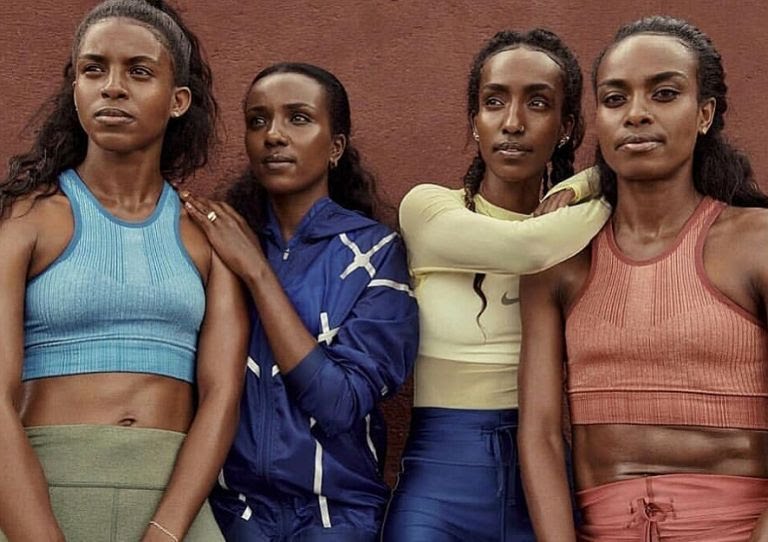The Dibabas siblings from Ethiopia are super accomplished in the sports game and there’s no stopping them!
When it comes to track and field, The Dibabas sisters — Tirunesh, Genzebe, and Ejegayehu, dominate big and have left an unprecedented record – The only siblings in history to hold concurrent world records – 4 Olympic gold medals, 2 silvers, 3 bronze and 15 World Championships.
Tirunesh, with three Olympic gold medals, grabs title as the most decorated. At the 2008 Olympics in Beijing, she became the first woman to win gold in the 5,000 meters and 10,000-meter races. She further won gold at the 2012 Olympics in London and became the first woman to win the event at two consecutive Olympics.
Genzebe is a silver medalist who shone brightly at the Rio Olympics in 2016, their older sister, Ejegayehu, also an Olympian won silver from Athens. Their cousin Derartu Tulu was the first Black African woman to win Olympic gold, in the 1992 games.
“World records, Olympic medals, world championships—the Dibabas’ accomplishments are unprecedented in this sport,” says Boldon. “There are a few running families, but not like the Dibabas,” says the Ethiopian track legend Haile Gebrselassie.

In fact there are seven Dibaba siblings, and all of them run. “What the Dibabas have is what Serena and Venus have, except there are more of them,” says Ato Boldon, NBC’s track analyst. “It’s not a stretch to say they are the world’s fastest family.”
Further painting a more vivid picture, NBC’s Boldon explains, “When the Dibabas come down to sea level—I’m not going to say it’s like Superman coming from Krypton, but it is a version of that.” There’s also the Ethiopian diet, with its reliance on the iron- and calcium-rich grain teff, and the typical Ethiopian body type, petite and narrow, which is ideal for the sport: Tirunesh is five feet three and 110 pounds; Genzebe is five feet five and 115 pounds. “They have a lot of fight in a very small lightweight frame,” says Boldon.
“If you compared them to a car, they would be a Ford Focus with a Ferrari engine.”
Born to parents who were farmers, the siblings were raised three hours south of the country’s capital of Addis Ababa and grew up in a tukul, also known as a round mud hut, without electricity. Their mother, Gutu, told Vogue that she attributes the women’s success to a loving environment as well as a steady supply of milk from the family cows.
The Dibabas alongside sport are real estate moguls and are big on investing in their communities.



